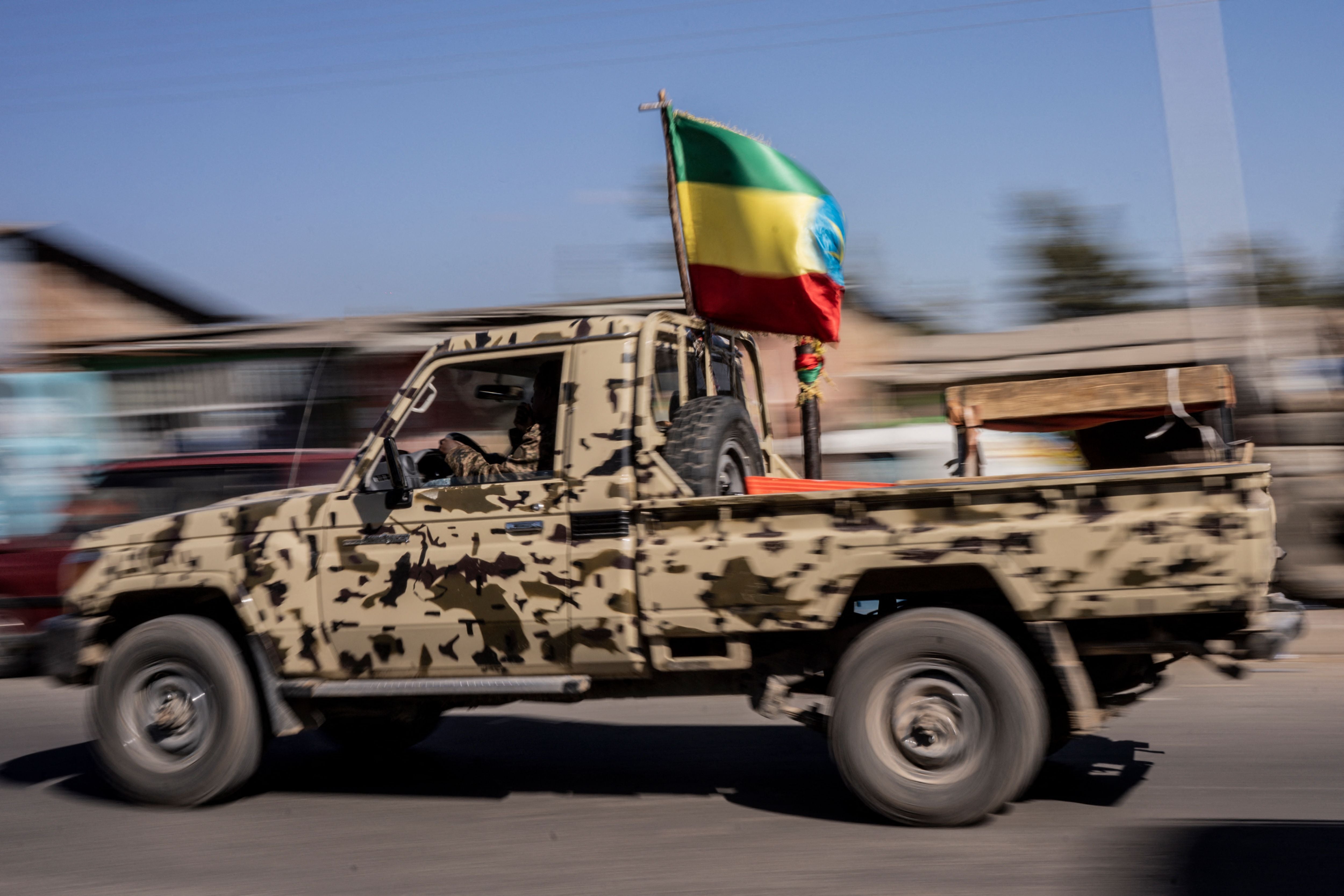UN human rights forum agrees to investigate abuses in Ethiopia
UN official found rights violations on all sides of the war between government forces and rebels

Your support helps us to tell the story
This election is still a dead heat, according to most polls. In a fight with such wafer-thin margins, we need reporters on the ground talking to the people Trump and Harris are courting. Your support allows us to keep sending journalists to the story.
The Independent is trusted by 27 million Americans from across the entire political spectrum every month. Unlike many other quality news outlets, we choose not to lock you out of our reporting and analysis with paywalls. But quality journalism must still be paid for.
Help us keep bring these critical stories to light. Your support makes all the difference.
The UN Human Rights Council has voted to set up an independent investigation into abuses in the Ethiopian conflict, after a senior UN official said there had been violations on all sides and mass arrests under a government crackdown.
The resolution, brought by the European Union and backed by Western states, passed on Friday despite objections from Ethiopia, which dismissed accusations of abuses and said it had already cooperated in investigations into the year-old war.
“A number of these violations may amount to crimes against humanity, and urgently require further investigations by independent experts,” the EU delegation to the UN in Geneva said in a statement welcoming the decision.
The resolution establishes a three-member panel of experts for one year to collect evidence and identify those responsible for violations with a view to future prosecutions.
Just before the vote, Ethiopia’s envoy to the UN in Geneva, Zenebe Kebede, dismissed what he called a “politically-motivated” text.
“The allegations levied against my country are unfounded and disregard the facts on the ground,” he added.
Earlier, he denounced what he said was a series of abuses by rebellious forces from the northern Tigray region and said the government would not work with the proposed panel.
“Ethiopia is being targeted and singled out at the Human Rights Council for defending a democratically elected government, the peace and the future of its people,” he said.
Thousands of civilians have died and millions have fled in the conflict between the federal government and rebellious forces including fighters loyal to the Tigray People’s Liberation Front (TPLF), which dominated Ethiopia’s ruling coalition for nearly 30 years.
There was no immediate comment from the TPLF on Friday. In the past, it has said some individual soldiers or militias may have committed abuses that should be investigated but that regular Tigrayan forces are well disciplined.
The vote on the motion after a day-long special session was 21 states in favour, 15 against including China and Russia, with 11 abstentions at the 47-member forum in Geneva.
The African Group of countries had also called for the resolution to be rejected, saying that the proposed investigative mechanism was “counterproductive and likely to exacerbate tensions”.
But six African countries including Senegal and Sudan broke ranks and abstained, the tally showed.
The UN Deputy High Commissioner for Human Rights, Nada al-Nashif, told the session that all sides in the deepening conflict in northern Ethiopia are committing severe human rights violations and should pull back from the war.
An estimated 5,000 to 7,000 people are detained, including nine UN staff, under a state of emergency and its “excessively broad provision” declared by the government last month, she said.
“Many are detained incommunicado or in unknown locations. This is tantamount to enforced disappearance, and a matter of very grave concern,” she said.
Ethiopia’s Zenebe did not comment directly on the accusations of detentions. But he said that the state-appointed Ethiopian Human Rights Commission had already worked with the UN rights office to investigate accusations of abuses, and was ready to do so again.
That joint investigation published last month found that all sides in Tigray’s conflict had committed violations that may amount to war crimes.
In Addis Ababa, Ethiopian government spokesman Legesse Tulu did not respond to requests for comment.
Reuters
Subscribe to Independent Premium to bookmark this article
Want to bookmark your favourite articles and stories to read or reference later? Start your Independent Premium subscription today.



Join our commenting forum
Join thought-provoking conversations, follow other Independent readers and see their replies
Comments